The 'surprising' legacies of Windrush generation
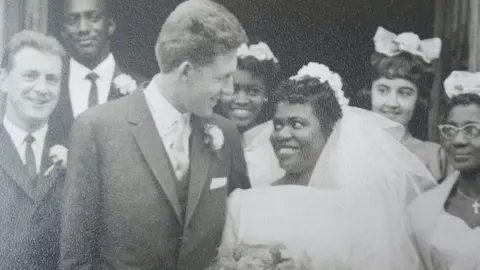 Lileth Warford
Lileth Warford"Surprising stories" from a city's first African Caribbean residents are being shared in an exhibition looking at the legacies of the Windrush generation.
The project was the brainchild of Dr Carol Brown-Leonardi, founder of the African Caribbean Research Group (ACRG), in partnership with the Museum of Cambridge.
She said: "Stories I didn't expect to hear came flowing out and I thought, 'Oh my gosh, we need to put them in a museum and let people see them'."
They include an artist whose works are now in national collections, a midwife who set up a clinic in Sierra Leone - and a forgotten cricket team.
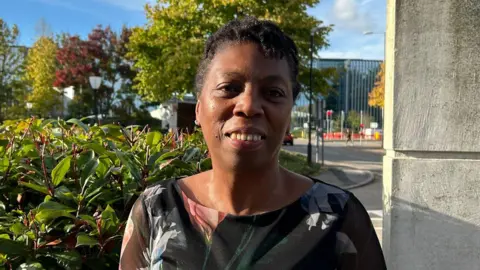 Honor Morgan/BBC
Honor Morgan/BBCOpen University lecturer Dr Brown-Leonardi began gathering the oral histories in 2023 and found them "so surprising and unexpected" that she approached the museum about showcasing them.
"We didn't realise we had an elder who is an artist called John Lyons, now 92, who is part of the Cambridge community, who has his work in several national collections in art galleries all over England," she said.
"And there's a 92-year-old Windrush nurse called Lileth Warford, who was in a dual-heritage marriage in the 1960s. She and her husband went to Iran and then to Sierra Leone, where she opened a mother and baby clinic."
What is the Windrush generation?
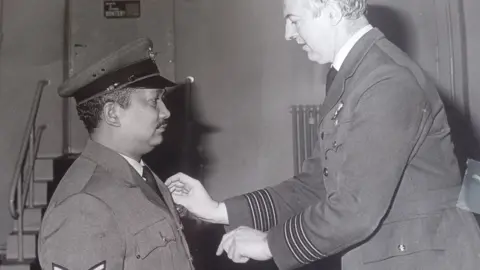 Eugene Toyloy
Eugene ToyloyIn 1948, the British Nationality Act gave people from colonies the right to live and work in Britain to help fill post-war labour shortages and rebuild the economy.
That year, HMT Empire Windrush docked in Tilbury, Essex, bringing hundreds of passengers from the Caribbean to the UK.
It became a symbol of a wider mass-migration movement.
These travellers - and those on other ships which came to the UK until 1971 - became known as the Windrush generation.
Many had served in the British armed forces in World War Two.
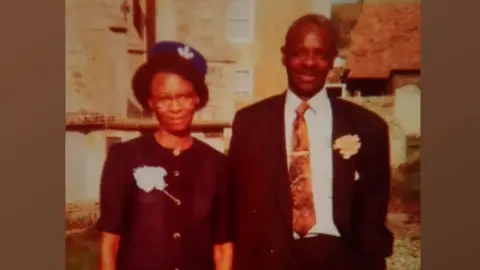 Mrs Crowe
Mrs CroweJamaican-born Albert Gordon was the landlord of the Midland Tavern, on Devonshire Steet, now the Devonshire Arms, and it turned out he had a link to a forgotten cricket team.
Dr Brown-Leonardi said: "His grandson discovered he was very instrumental in forming a Caribbean cricket team in Cambridge which lasted until the 1980s.
"The ACRG thought we were the first to set up an African-Caribbean cricket club - which is open to people from any ethnicity in Cambridgeshire - but we weren't the first at all."
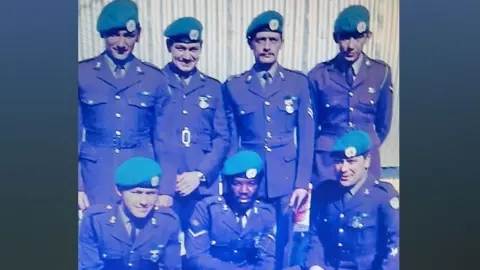 Lt Col George Nelson
Lt Col George NelsonThe project also unearthed the first soldier of Caribbean-heritage to serve in Northern Ireland, the woman who set up the city's first African Caribbean church and a man who fought in Borneo while serving with the RAF.
"It's really important to have these stories in a local museum because the city's Caribbean community is very much in the shadows and people will see the contribution they made, how dynamic they were - what they did is incredible," she said.
Legacies of Windrush in Cambridge was funded by a £48,000 grant from the Arts Council and the National Lottery Heritage Fund. It runs until January.
Follow Cambridgeshire news on BBC Sounds, Facebook, Instagram and X.
